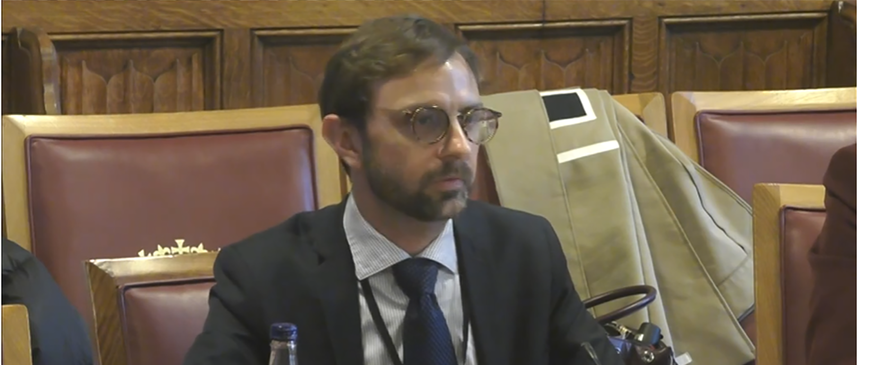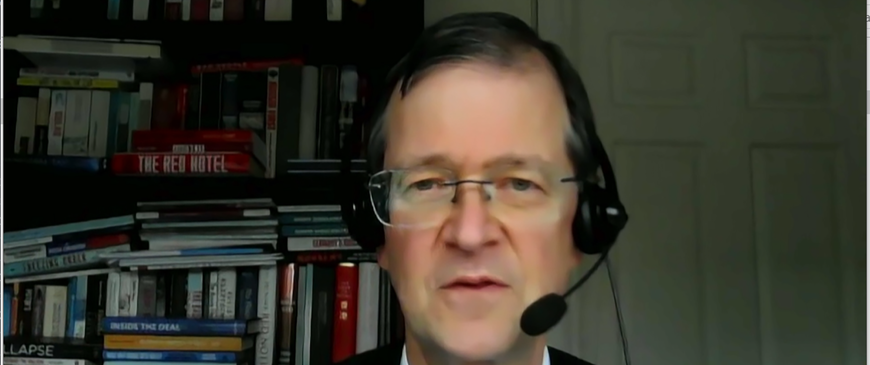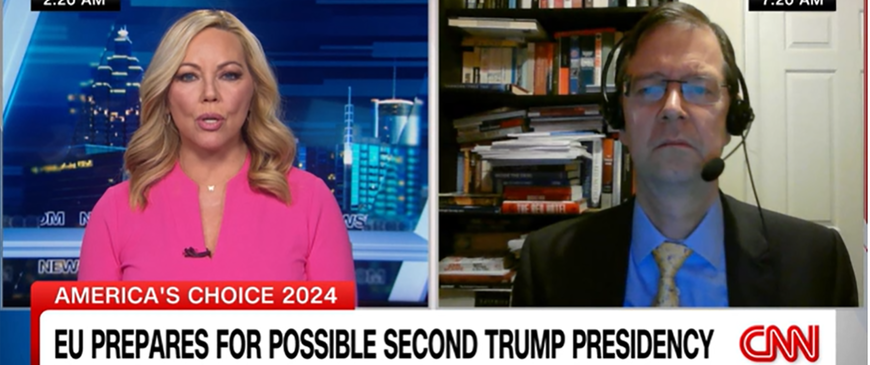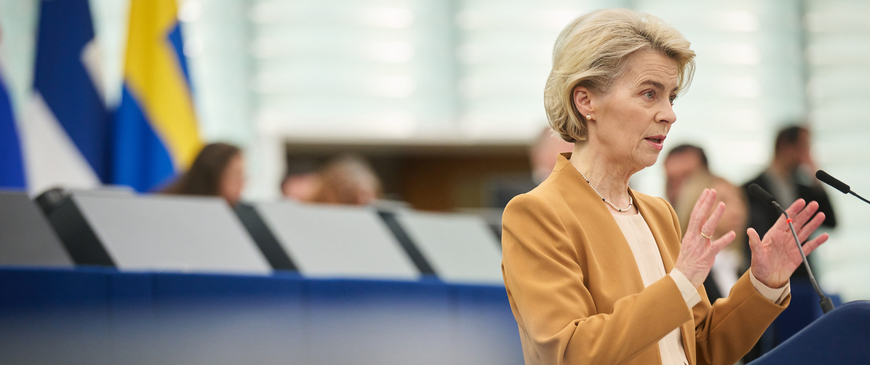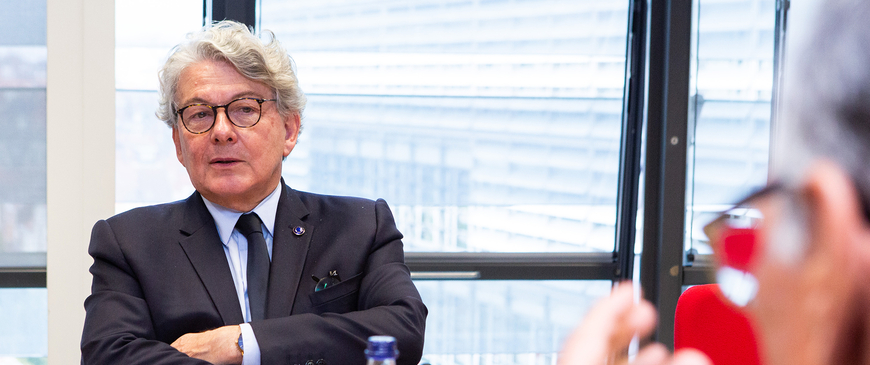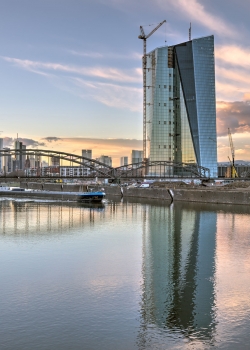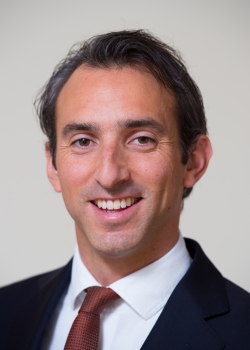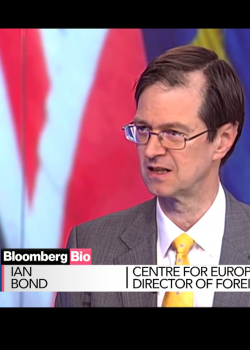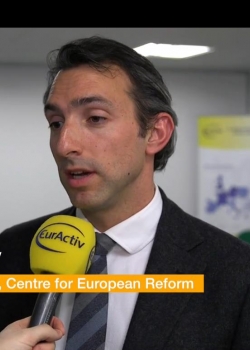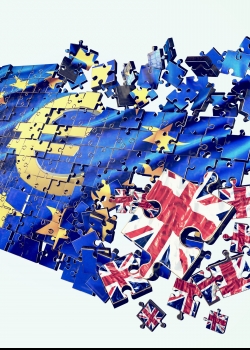Press
Free Lunch: Central banks cannot escape the searchlights
11 April 2016
Financial Times
But Schäuble and his colleagues would spend their time better explaining to their compatriots what Christian Odendahl recently wrote in the Zeit: in a market economy, there is no right to a given interest rate on an unlimited amount of savings.
Mere criticism of the ECB is no solution
10 April 2016
Frankfurter Allgemeine
What would happen if the ECB failed to respond to the excessively low inflation and the weak economy? What economic policy would be suitable under the current circumstances, if not monetary policy?
Brexit brief: The economic consequences
09 April 2016
The Economist
Later this month the Centre for European Reform, a think-tank, will publish a revised version of its 2014 study on Brexit, based on the work of economists from Groningen University in the Netherlands. It concludes that Britain’s trade with the EU has been 55% greater than it would have been without membership - and that there have been no detectable losses from trade diverted from third countries towards the EU
Have the wheels come off German miracle?
09 April 2016
The Times
“We do not know when the next downturn will come in the eurozone, but the current cyclical upturn won’t last for ever,” Simon Tilford, deputy director of the Centre for European Reform, said. “We are already seeing voter frustration at the inability of governments to effect economic performance and living standards. The next downturn could be politically very destabilising.”
Dutch Ukraine referendum: EU ability to sign international treaties at stake
08 April 2016
Borderlex
Rem Korteweg Senior Research Fellow at the Centre for European Reform, a think tank in London, told BNE Intellinews that membership perspective for neighbouring countries, be it Ukraine or Balkan countries, already unlikely, could become even more distant. “It is very likely that any enlargement decision will be subjected to a referendum, in the Netherlands or elsewhere, and rejected. The Dutch government will be very hesitant to agree to any enlargement in the current circumstances”, Korteweg explains.
Bloomberg "The Pulse": Dutch snub EU in referendum
07 April 2016
Dutch voters rebelled against a treaty between the European Union and Ukraine in a referendum on Wednesday, albeit on low turnout that fell short of the stampede that anti-EU campaigners hoped for.
Dutch referendum raises concerns over EU enlargement
07 April 2016
Politico
Rem Korteweg, a Dutch senior research fellow at the London-based CER, echoed concerns throughout the region. "This will slow the accession process down and raise doubts about whether the EU can stand by commitments it makes," he said. "The Dutch government will find it difficult to agree to enlargement with any state at this juncture."
Czy Holandia zechce Ukrainę? Dziś referendum w sprawie ratyfikacji umowy UE
06 April 2016
Gazeta Wyborcza
Nie musi podporządkować się wynikowi głosowania, ale pełne zlekceważenie "nie" byłoby politycznie trudne dla partii z koalicji premiera Marka Ruttego, które popierają umowę stowarzyszeniową. - Dlatego niektórzy w Holandii liczą na środowy deszcz. Obniżyłby frekwencję - mówi Rem Korteweg z Centre for European Reform.
Will Britain leave the EU over The Panama Papers? How David Cameron may affect the Brexit vote
06 April 2016
International Business Times
"Chances are many people will have forgotten the details by the time we get there," said Ian Bond, director of foreign policy for the pro-EU Centre for European Reform based in London. "But they probably will strengthen that populist sense which the campaign to leave the EU is tapping into that you have a political elite that lives in a different world from ordinary people and I think that is potentially quite damaging to the remain side."
Putin looks to the Dutch for a Ukraine boost
06 April 2016
Newsweek
Dutch Prime Minister Mark Rutte, whose country currently holds the rotating presidency of the EU’s Council of Ministers, ducked out from campaigning hard for a yes vote. “He fears that he has little to gain from leading [the yes campaign]. He faces general elections in spring 2017, and his party is neck-and-neck with Geert Wilders’s right-wing populist Freedom Party in the race to become the country’s largest [in the Dutch parliament],” argued Rem Korteweg of the Centre for European Reform.
Holanda examina la profundidad del eurodesencanto en la Unión Europea
06 April 2016
El Pais
Rem Korteweg, del CER —un think tank londinense— se hace eco de las encuestas y apunta que el no holandés “es probable”. Y tendrá consecuencias: “Minaría la relación entre la UE y Ucrania, daría al presidente ruso Vladímir Putin una victoria inmerecida y avivaría los populismos a lo largo de Europa”, subraya.
Sky News with Kay Burley: In or Out? Is the EU good or bad for business?
05 April 2016
Sky News
"It is very very hard to see what problems facing Britain today would be solved by leaving the EU. We need to avoid scapegoating the EU for our own failings." argued Simon Tilford of the CER on Sky News. Asked why Germany is still the highest producer of steel in the EU, whilst the UK steel industry is contracting, he answered; "membership of the EU is not a constraint on British exporters. It doesn't handicap their ability to sell into emerging markets."
Dutch referendum could cause trouble for European Union
05 April 2016
The New York Times
The awkwardness for Prime Minister Mark Rutte is that while the Dutch Parliament has ratified the agreement, an instrument of ratification must be deposited with the European Union in Brussels for it to be legal. This gives legal space to the referendum, said Rem Korteweg, a Dutch analyst with the CER. If Dutch voters oppose the deal against the vote of their duly elected Parliament, as they are currently expected to do, Mr Rutte "will have to find a middle road," Mr Korteweg said. After all, he noted, the Netherlands currently holds the rotating presidency of the European Council.
The reckless return of migrants to Turkey is a dangerous time for Europe
05 April 2016
The Independent
Ankara has not managed to shut down migration flows in the past, and there is nothing to prevent the Turkish President, Recep Tayyip Erdoğan, asking for more concessions.
No Dutch courage for Ukraine
04 April 2016
Carnegie Europe
Dutch Prime Minister Mark Rutte, whose country currently holds the rotating presidency of the EU's Council of Ministers, ducked out from campaigning hard for a yes vote. "He fears that he has little to gain from leading [the yes campaign]. He faces general elections in Spring 2017, and his party is neck-and-neck with Geert Wilders’ right-wing populist Freedom Party in the race to become the country’s largest [in the Dutch parliament]," argued Rem Korteweg of the CER.
Britain's pro-Europe campaigners are losing the argument
03 April 2016
Financial Times
They cannot find it within themselves to say anything nice about the EU. They have to reform it first. This is what David Cameron, the British prime minister, did in Brussels in February. It is no coincidence that the best known pro-European think-tank in the UK is called the Centre for European Reform.
CER podcast: The Dutch-Ukraine referendum
01 April 2016
The Netherlands will vote on the EU’s association agreement with Ukraine on April 6th. Like the British referendum, the Dutch referendum risks making both the EU and its eastern neighbourhood less stable.
UCL European Institute: John Springford on migration in the Brexit debate
31 March 2016
John Springford, senior research fellow at the Centre for European Reform on the economic and trade implications of free movement, and the role of migration in the referendum on Britain's EU membership.
Euractiv stakeholder workshop: What will TTIP mean for the UK?
31 March 2016
Rem Korteweg talks to Euractiv at their stakeholder workshop on: TTIP, what does it mean for the UK?
Why Britain should remain European
31 March 2016
Project Syndicate
The CER report is strongest on the real (nonfinancial) economic issues. The most contentious point here is whether the British economy is held back in some way by red tape imposed by Brussels or by European treaty obligations.It is very hard to find any such stifling effect in the data. The CER points out that product- and labor-market regulation in the UK are closer to that of the United States than to Western Europe, and the same broad pattern emerges from the OECD’s assessment of barriers to entrepreneurship.

